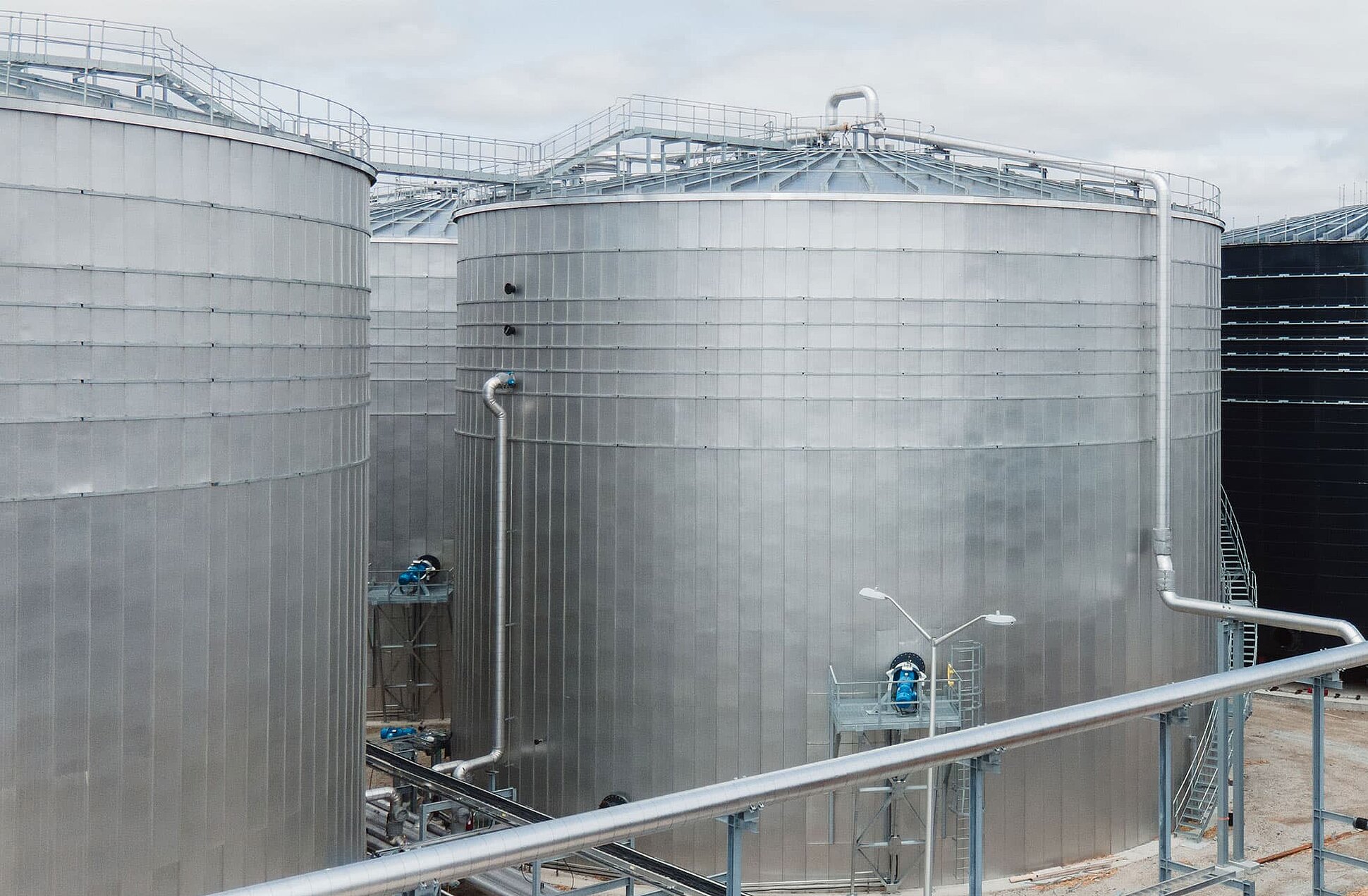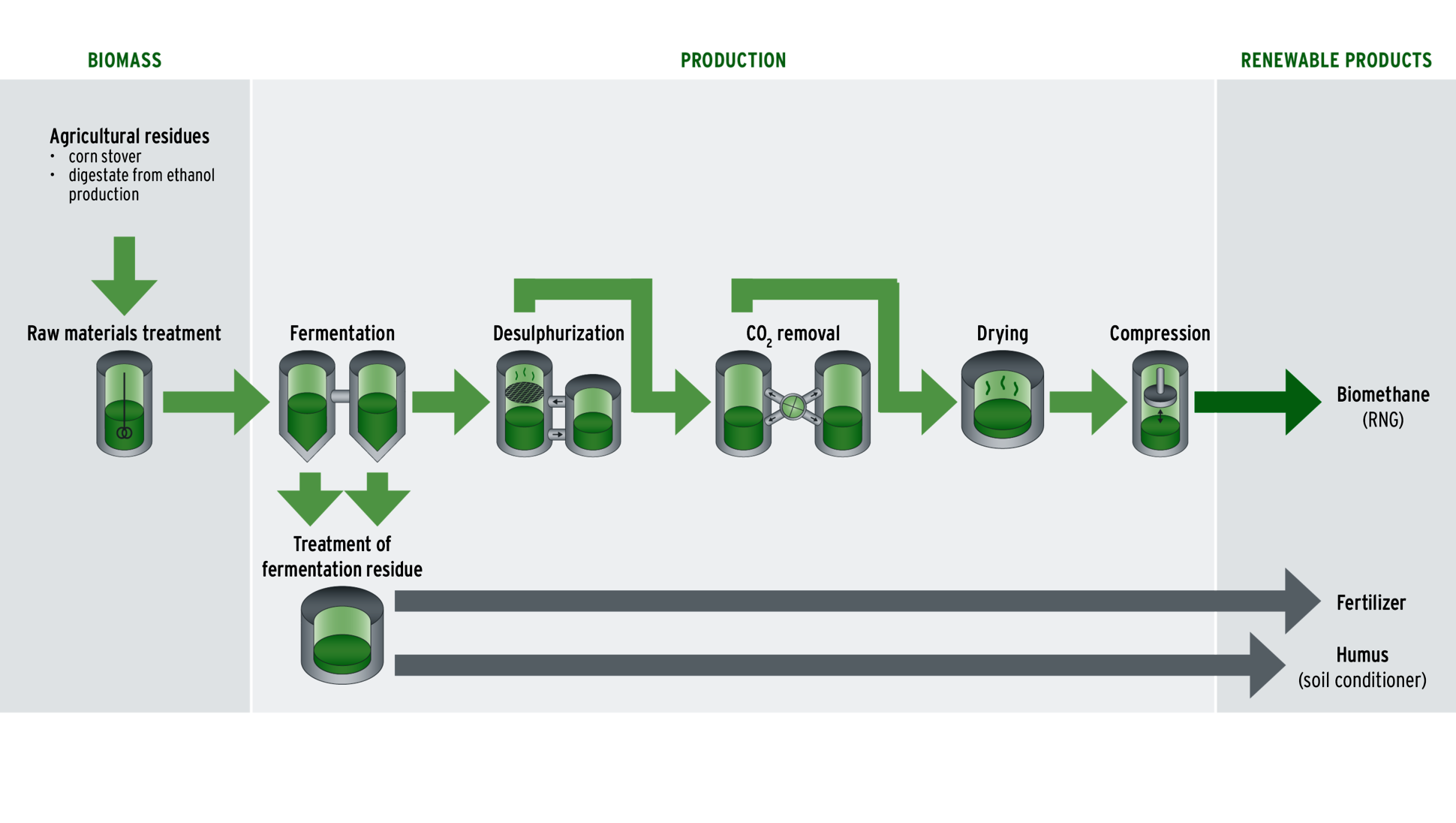Biogas (RNG)
The Verbio Nevada Biorefinery, located in Nevada, Iowa, is the first industrial scale renewable natural gas (RNG) facility in North America. RNG production began in December 2021, initially utilizing corn stover, and the site now uses stillage — a by-product of ethanol production — as its primary feedstock. This integrated approach enhances resource efficiency and sustainability. Building on the success of the Nevada facility, Verbio is expanding its U.S. footprint, with a second biorefinery currently under construction in South Bend, Indiana.
- Verbio has developed advanced technology to produce renewable natural gas (RNG) from agricultural feedstocks and cellulosic by-products, including stillage from ethanol production.
- Once the feedstocks are collected from local growers and checked for moisture content, they are prepared and sent through our processing system, where they are broken down into smaller particles and mixed with water before entering the digesters.
- In the fermentation tanks, raw biogas is produced, composed of approximately 55% methane and 45% carbon dioxide. The carbon dioxide and other impurities are then removed through a biogas treatment process, leaving nearly pure RNG — chemically equivalent to fossil natural gas. After quality checks, the RNG is compressed to grid pressure and injected into the Alliant Energy natural gas distribution grid on site. It is used both regionally and throughout the country.
Following the production cycle, any remaining unfermentable material in the tanks is further processed into digestate or humus, a nutrient-rich soil amendment. This material is sold back to local growers and returned to the fields to restore nitrogen, phosphates, and organic carbon, supporting sustainable agricultural practices and completing the circular bioenergy loop.
- Renewable natural gas from the Verbio Nevada Biorefinery is injected into an Alliant Energy pipeline before being distributed across the country. Alliant Energy delivers the energy from the production at the facility to its natural gas customers in Iowa. Further, the company helped to develop standards and regulations for RNG as well as constructed interconnection options for the site, allowing Verbio to comply with requirements established for the sale of RNG in other states.
- The basis for our RNG is cellulosic feedstocks and crop residues sourced from local growers within a 30- to 50-mile radius of our plant. By supplying these materials, they contribute directly to sustainable energy production and help reduce greenhouse gas emissions that would result from natural decomposition of the ag residues in the fields. In addition to supporting climate protection, growers benefit from a new source of income and enhance the productivity of their land, making the partnership both environmentally and economically valuable.

